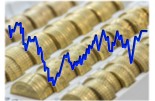Fidelity International: Nederlandse belegger optimistisch over aandelenmarkt
Fidelity International: Nederlandse belegger optimistisch over aandelenmarkt

This year hasn’t been easy for investors as geopolitical events have created uncertainty. But despite a rise in market volatility across the globe, more investors in the Netherlands are optimistic than pessimistic on the outlook for the stock market, according to the latest survey findings from Fidelity International.
Fidelity International surveyed 1,000 local retail investors in the Netherlands, as part of its wider European Investor Sentiment Survey, aiming to provide a pulse check of investor behaviour across Europe. In the Netherlands, over half (52%) of investors surveyed hold an optimistic view of the stock market for the next 12 months, possibly buoyed by the recent market rebound after the sharp sell-off following "Liberation Day”. Meanwhile, 26% expect the markets to remain stable, while only 19% express a more pessimistic outlook.
Short-term investment confidence rattled
Asked how their investment behaviour might change in the next 12 months, the survey found 29% of investors in the Netherlands are likely to invest less in the next 12 months, with market uncertainty/volatility and concerns over the impact of geopolitical events on their investments the top reasons given for this choice. On average, those planning to reduce how much they invest predict they would invest almost €4,000 less in the next 12 months.
Sanela Kevric, Head of Sales in Benelux at Fidelity International comments: 'While investing may feel uncomfortable with almost daily fluctuations, it is important to realise that market volatility is an inevitable and inherent part of investing. Market corrections may even create attractive opportunities for investors with a long-time horizon. Investors will be best placed to stay invested in a diversified portfolio to capture different market cycles.'
Responding to market volatility
In response to market volatility, over half (51%) of investors surveyed stated that market fluctuations do not influence their behaviour, as they remain committed to their long-term strategy despite short-term market movements. A further 19% sought advice from a financial adviser, indicating a preference for professional support over impulsive reactions. 17% reported that they have typically increased their investments during volatile periods, embracing the strategy of "buying the dip”.
Overall, the findings suggest that investors in the Netherlands are showing discipline in how they respond to market uncertainty. While many stay the course, others seek professional insight or adapt their strategy with care - highlighting a growing awareness of the benefits of long-term thinking.
Investors sway towards home market, and crypto assets
Almost one third (31%) of investors in the Netherlands expressed a preference for home assets as a buying opportunity in the year ahead. Wider Europe was second preferred option (27%) followed by global assets (15%).
Stocks and shares and interestingly, crypto assets topped the most popular asset type among investors in the Netherlands (34% respectively), with cash falling coming in third place with 23% of investors selecting this as a buying opportunity.
Table 1: Which markets do you think present buying opportunities for the year ahead?
|
Home market |
31% |
|
Europe (outside home market) |
27% |
|
Global |
20% |
|
US |
15% |
|
China |
13% |
|
Emerging markets excluding China (e.g. India, South America, Russia) |
13% |
|
Japan |
7% |
|
UK |
5% |
Source: Fidelity International, Opinium, June 2025.
Table 2: Which of the following assets do you see as buying opportunity in next 12 months
|
Stocks and shares |
34% |
|
Crypto assets (e.g. bitcoin, ether) |
34% |
|
Cash |
23% |
|
Commodities (e.g. gold bullion) |
18% |
|
Bonds/fixed income |
11% |
|
Other investments |
11% |
|
Physical real estate (second home, investment property etc.) |
9% |
|
Currencies/FX |
8% |
|
Alternative investments (real estate funds, private equity) |
7% |
Source: Fidelity International, Opinium, June 2025.
Sanela Kevric expands on three key strategies that investors should consider for navigating market volatility:
1) Stay invested
It may sound counterintuitive but staying invested throughout times of volatility is the best strategy. When markets hit rocky waters, jumping in and out should be avoided, otherwise you run the risk of missing out on unexpected opportunities that might arise from market corrections.
Regardless of how experienced one is as an investor, it is incredibly difficult to predict how the market is going to behave. Therefore, timing the market is a bad idea and you are more likely to get it wrong than you are right. Taking a long-term approach and remaining invested in spite of highs or lows is more likely to get you the outcome you want.
2) Remember to diversify
Diversification is key in making sure that you are spreading your risk, as the likelihood that all assets will crash at the same time is slim to none. Having a mix of assets, from shares and funds to bonds and cash, across different sectors and geographies is a good way to make sure that your portfolio is volatility proofed.
3) Market corrections can create attractive opportunities
Sometimes amid the storm, a glimpse of opportunity can emerge and it is important to keep your eyes open and be positioned to take advantage of this. Although this a somewhat contrarian approach, buying shares in a company or a fund that is heading south could be worth taking. In other words, volatility can be your best friend.










